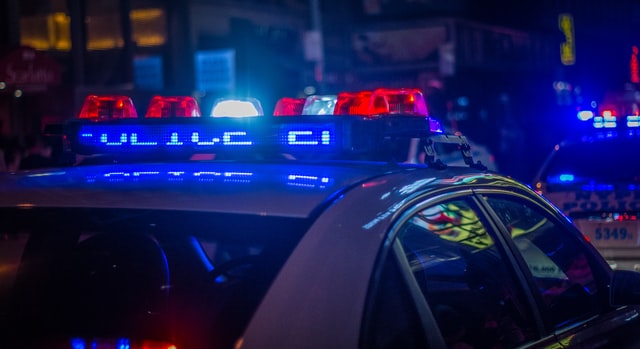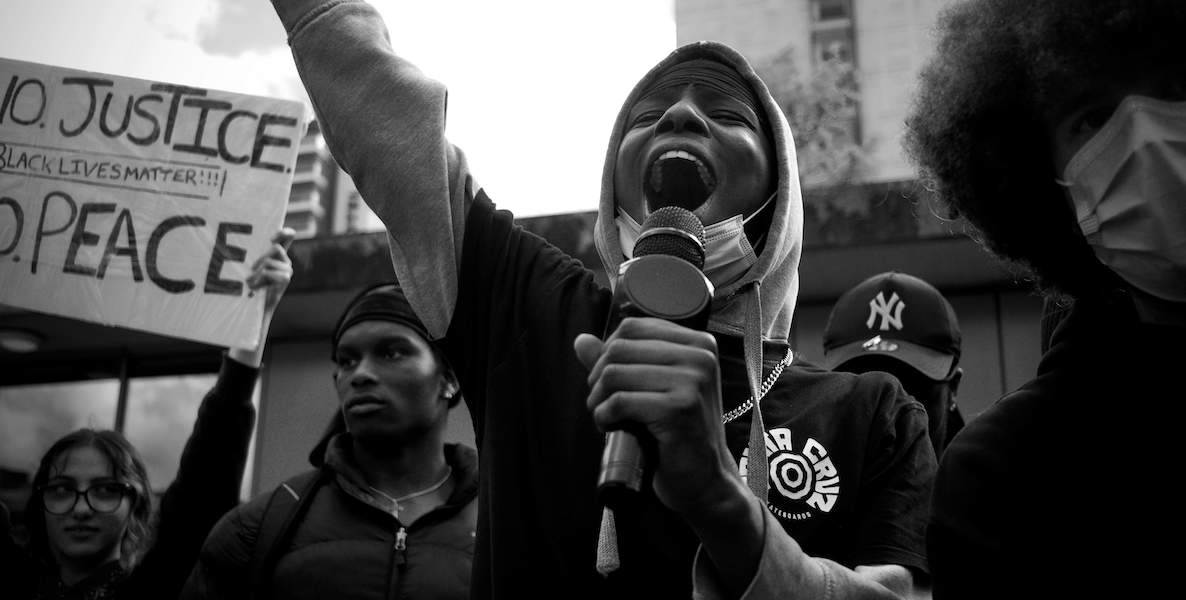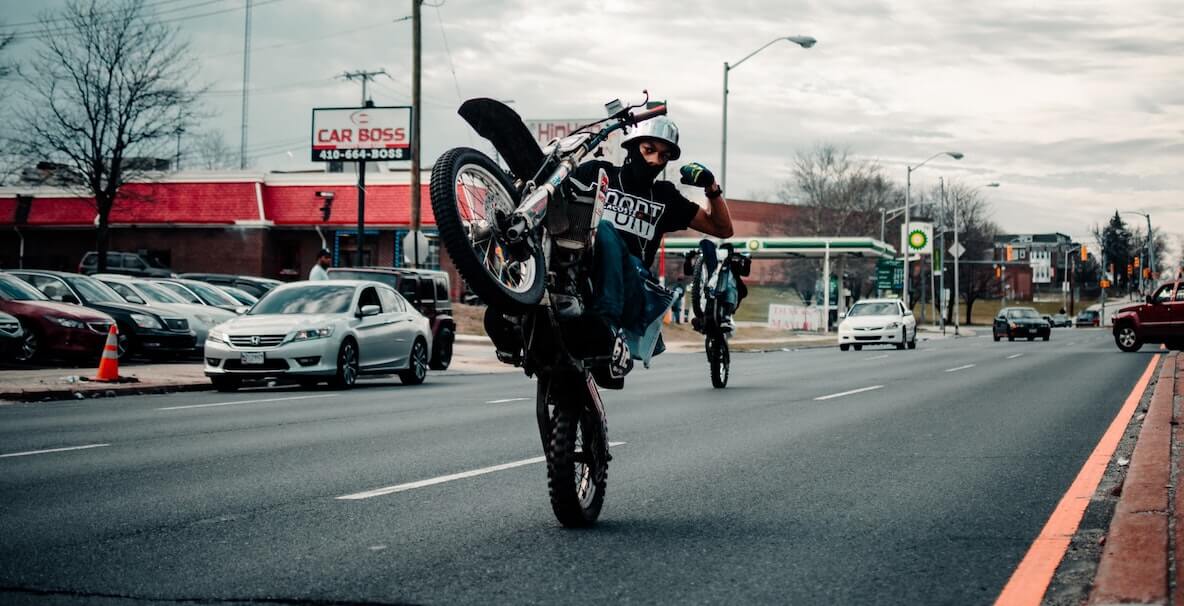If you’ve ever been on North Aramingo on a Friday night, you know the sound: the explosive whine of hundreds of two-stroke engines, punctuated by the occasional burnout. You can hear it from miles away, south of Lehigh even.
The congregation of scores of ATV and dirtbike riders out cruising through commercial parking lots, up and down a quiet thoroughfare, getting up on one wheel—two for the quads—and gunning it. An aggro rainbow of colors, Kawasaki green, cherry red and, yes, occasionally hot pink set against the unbelievably muted backdrop of Port Richmond’s commercial corridor.
It’s unlike anything you’ll ever see, an expression of joy comparable, perhaps, to a platoon of wheelie kids riding down Delaware Ave.
It also happens to be where a young man named Angel Ramirez was murdered on June 13, shot multiple times in the head by yet-identified (and if Philly’s record in solving murders is to be appreciated, unlikely to be arrested) assailant, who may have absconded with the dirtbike Ramirez was riding. It’s not the first instance of violence involving riders in Philly, and unlikely to be the last.
For some, Ramirez’s killing was the final straw, the tipping point of a long-brewing local cultural conflict.
ATV’s and dirtbikes are a Rorschach test for Philadelphians—a different thing to everyone at once.
See, ATV’s and dirtbikes are a Rorschach test for Philadelphians—a different thing to everyone at once. They are a remarkable cultural artifact and something special, an item of multicultural joy and an uncommon oddity—if you come to Philly from another city or town, you are, no matter how you feel, ensorceled by the sight and sound of 30-odd two-stroke powerhouses being driven down the Ben Franklin Parkway by daredevil pilots. Simply put, they are cool as hell, and no amount of browbeating or finger-wagging can change that fact. It is the natural order of things. The first time you see a dirtbike shredding up and down city streets, you want one.
Or at least, I do.
They are, simultaneously, among the biggest nuisances in this city, and less of an enjoyable cultural artifact to people living in, say Port Richmond or North Philly or along South Street, for whom they are a legitimate traffic threat, a source of constant noise pollution and cause no small amount of damage to streets. Dirtbikes and ATV’s regularly cause traffic accidents, and mounting recent evidence says massive caravans like the ones that show up on north Aramingo Avenue on weekends, can lead to some pretty shocking violence, up to and including murder.
It’s not all so codified and catalogued; if you’re reading this article, you have probably had to deal with a rider picking through traffic and failing to adhere to road safety rules.
It’s to be expected, really; if you had an unregistered street beast you wouldn’t use it to go to Home Depot and traipse your way down Delaware Avenue at 20 miles an hour.
These machines are a Rorschach test. If you see them frequently, you are annoyed; infrequently, you are delighted. If you express an opinion, you are assigned a side in the interminable culture war. As in a Rorschach test, there is no wrong answer. All opinions—public menace, delightful urban eccentricity, what have you—are a little correct, and it would be wise for us to begin to accept that. In other words, it’s one of those very few issues where there’s actually a chance to meet in the middle.
It smacks of another recent Rorschach test: the homeless encampments along the tracks and under bridges in and around Kensington. To well-meaning Center City and Queen Village inhabitants and activists, the callousness with which the situation was discussed—and ultimately handled—was repugnant. And it was a point well made, as Philadelphia police all but deployed a cattle catcher to move hundreds of unhomed people, most of whom were addicts or mentally ill, from the most consistent housing they’ve ever had.
MORE ON PHILLY’S MOST-CONTENTIOUS CHALLENGES
But go to the neighborhoods and see how they feel about the encampments. There is not zero compassion. After all, plenty of homeless folks in Philly are locals. There is, however, a weariness and frustration that comes along with being ground zero for the deprivations of a society that chews people up and sets them loose, unmoored and addicted. A person can only step over so many needles and witness so much extremity before losing sympathy, justified or not.
All of this is to say that there was a middle to be found, but it never truly was, but for some cursory attempts to find permanent housing for the folks being removed.
And it is also to say that there is a middle to be found when it comes to ATV’s and dirtbikes. The most recent City Council legislation is insanely punitive, making dirt bikes and, uh, “dune buggies” street-illegal. This is probably the most extreme action that could have been feasibly taken, a decisive lurch rightward in a homebrew culture war. It has been suggested by multiple confused, naive and well-intentioned City Council members that there should be a dirtbike and ATV “park,” based on the somewhat darling misconception that these guys with immaculate retro Yamahas are semi-pro motocross riders.
Making these vehicles street-illegal runs the risk of making them cooler, because, as previously mentioned they’re cool as hell already.
There are clearly better ways to go about handling this issue. Making these vehicles street-illegal runs the risk of making them cooler, because, as previously mentioned they’re cool as hell already.
A much simpler and more effective way to manage the number and flow of riders would be to compel riders to register their vehicles and get licensed. While it wouldn’t clear the problem up completely, it would definitely make a dent—after all, if you’re a casual cruiser, wouldn’t you rather take your chances of getting tagged up by a cop to zero?
It’s not as if there’s no precedent for registering less-conventional road vehicles. After all, there is a clear registering and licensing infrastructure for motorcycles and slingshot-style vehicles, as well as driver’s tests and insurance-mitigating safety and driver’s ed classes. Considering the fact that every dirtbike and ATV is produced with a Vehicle Identification Number, registration, insurance and licensing should be manageable. In order to encourage registration, you could even make it free for a stretch, considering riders would still have to pay insurance.
An unsexy solution to the problem? Yeah, for sure. But I’m certain there’s at least a few thousand riders in this town who look at the burgeoning crackdown on ATV’s and motorbikes and would rather pay a ticket than risk having their bike permanently confiscated by police. Make piloting a bike or ATV just like driving a car: operate it at your own risk, and as long as it’s properly registered and insured.
For many issues, there is no grey area. There is a right and wrong. But the recreational vehicle situation in Philly is one of those blessed few spots where, with some serious dialogue and commitment to establishing a bit more bureaucracy something special could be achieved.
Quinn O’Callaghan is a teacher and writer in Philadelphia. Follow him at @gallandguile.
The Citizen welcomes guest commentary from community members who stipulate to the best of their ability that it is fact-based and non-defamatory.
Photo by Colin Lloyd on Unsplash








